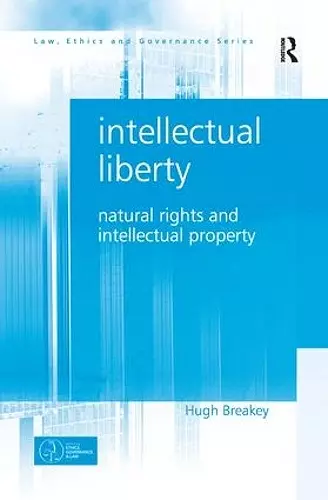Intellectual Liberty
Natural Rights and Intellectual Property
Format:Paperback
Publisher:Taylor & Francis Ltd
Published:17th Nov '16
Currently unavailable, and unfortunately no date known when it will be back
This paperback is available in another edition too:
- Hardback£150.00was £150.00(9781409447115)

Considering the steady increase in intellectual property rights in the last century, does it make sense to speak of ’user’s rights’ and can limitations on intellectual liberty be justified from a rights-based perspective? This book philosophically defends the importance of the public domain and user’s rights through the use of natural-rights thought. Utilizing primarily the work of John Locke, it contends that considerations of natural justice and human freedom impose powerful constraints on the proper reach and substance of intellectual property rights, especially copyright. It investigates both the internal and external natural-rights constraints on intellectual property, and argues in particular for the importance to human freedom of the right to intellectual liberty - the right to inform one’s actions by learning about the world. It concludes that respect for fundamental freedom-based interests require a balanced approach to the scope, strength and duration of intellectual property rights.
’...provides a valuable new component to the theoretical analysis of intellectual property law... Breakey offers us a conceptual foundation (and terminology) for the articulation of freedoms that are useful beyond the confines of intellectual property.’ The Law and Politics Book Review ’Intellectual liberty is set to become a key reference point in the emerging field of the philosophy of intellectual property. Breakey argues that rather than offering justifications for strong regimes of intellectual property rights, natural rights theories point towards effective and sustainable users' rights. Intellectual property rights do not stand as trumps but as components in systems of rights and liberties, in particular intellectual liberties, such as the freedom to learn about the world and to use what one has learned to inform one's actions. These intellectual liberties frame and cabin the reach of justifiable intellectual properties. Breakey's argument is made with care, sophistication, clarity, and verve.’ Lionel Bently, University of Cambridge, UK
ISBN: 9781138279704
Dimensions: unknown
Weight: 453g
186 pages